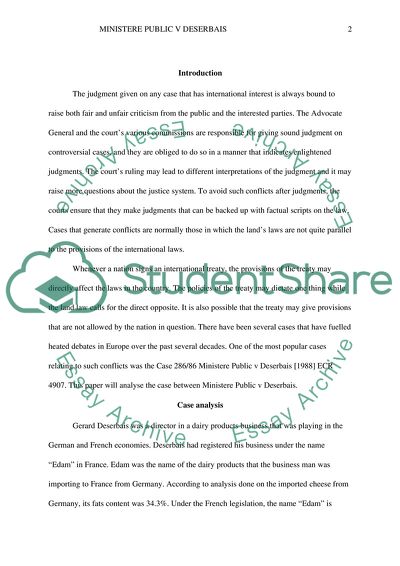Cite this document
(Ministere Public v Deserbais Case Study Example | Topics and Well Written Essays - 1500 words, n.d.)
Ministere Public v Deserbais Case Study Example | Topics and Well Written Essays - 1500 words. https://studentshare.org/law/1789086-write-1500-word-analysis-of-the-case-case-28686-ministere-public-v-deserbais-1988-ecr-4907
Ministere Public v Deserbais Case Study Example | Topics and Well Written Essays - 1500 words. https://studentshare.org/law/1789086-write-1500-word-analysis-of-the-case-case-28686-ministere-public-v-deserbais-1988-ecr-4907
(Ministere Public V Deserbais Case Study Example | Topics and Well Written Essays - 1500 Words)
Ministere Public V Deserbais Case Study Example | Topics and Well Written Essays - 1500 Words. https://studentshare.org/law/1789086-write-1500-word-analysis-of-the-case-case-28686-ministere-public-v-deserbais-1988-ecr-4907.
Ministere Public V Deserbais Case Study Example | Topics and Well Written Essays - 1500 Words. https://studentshare.org/law/1789086-write-1500-word-analysis-of-the-case-case-28686-ministere-public-v-deserbais-1988-ecr-4907.
“Ministere Public V Deserbais Case Study Example | Topics and Well Written Essays - 1500 Words”. https://studentshare.org/law/1789086-write-1500-word-analysis-of-the-case-case-28686-ministere-public-v-deserbais-1988-ecr-4907.


